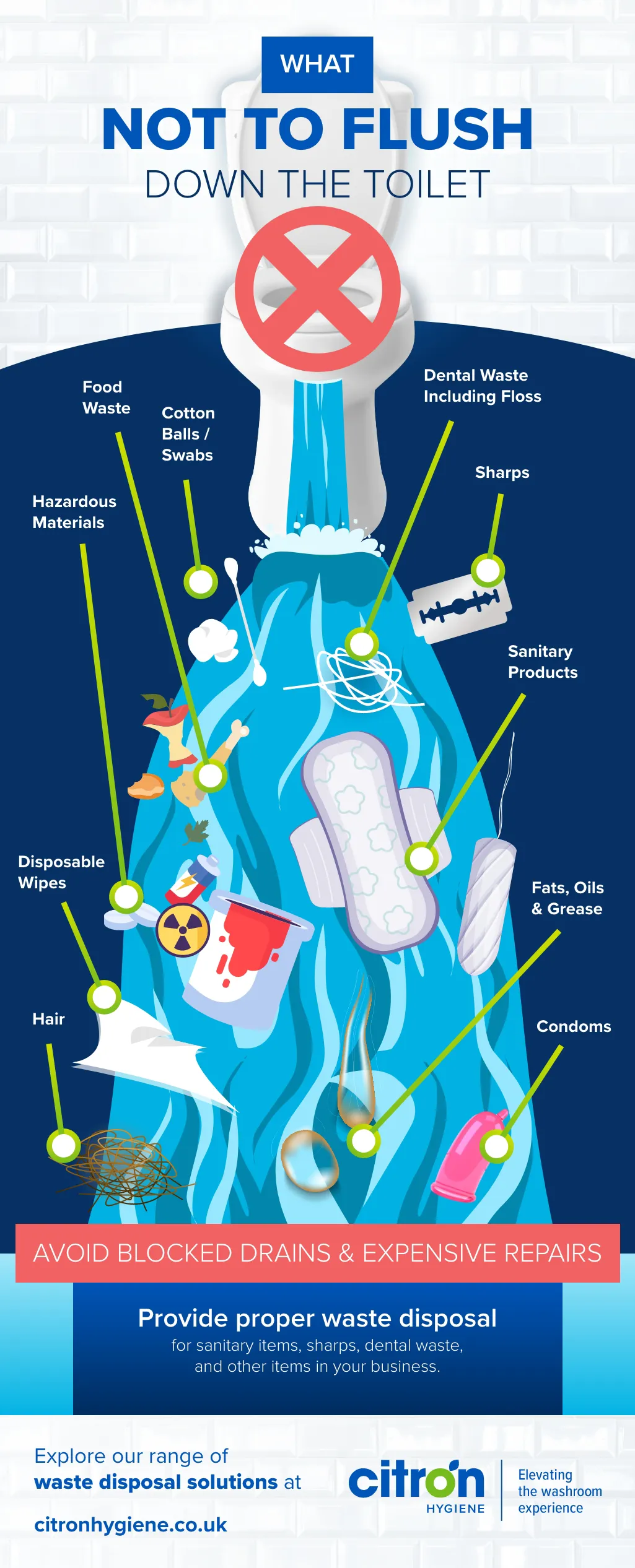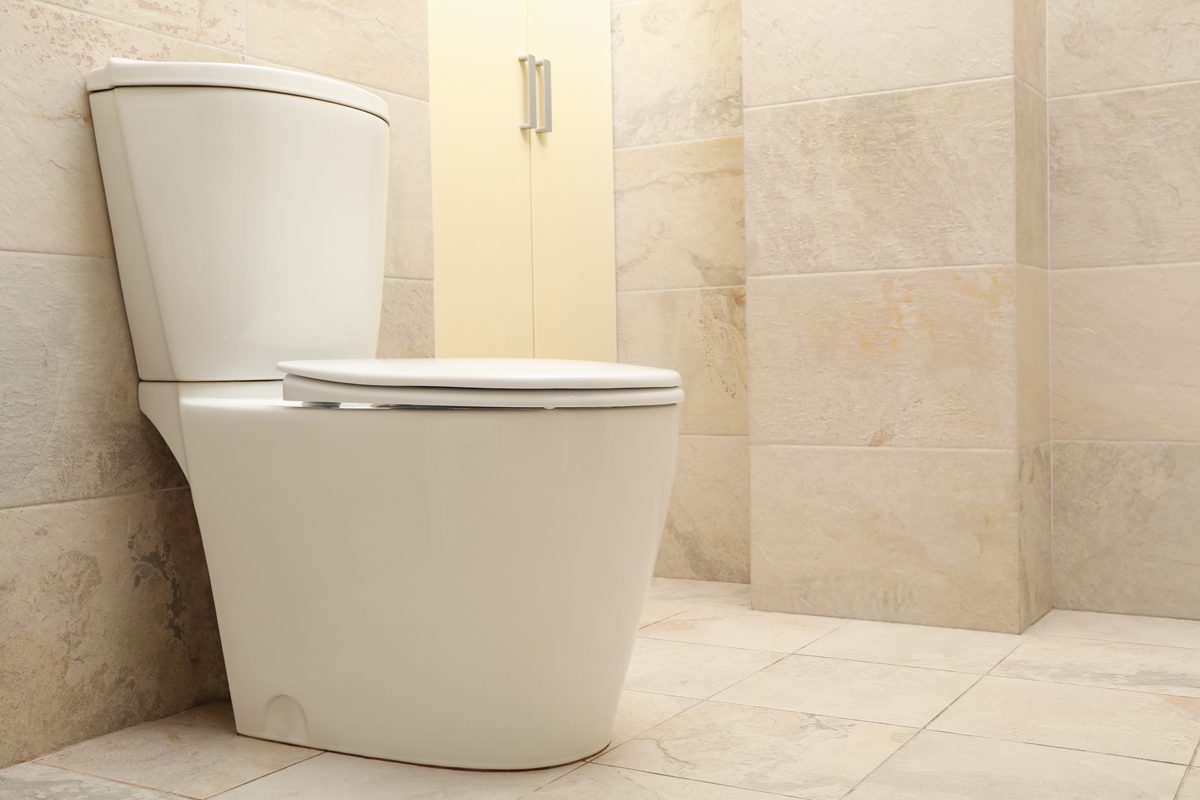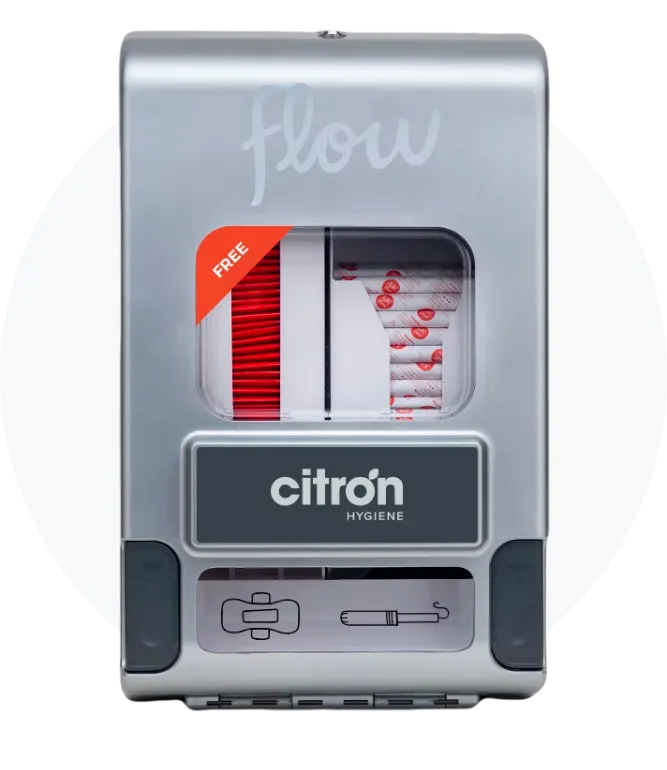Last Updated on 14th September, 2023
Tampons are an essential product that are used by millions of menstruators every month. In the UK alone, there are 15 million women who are of menstrual age, with each woman expected to use 10 tampons a month. This means an estimated 150 million tampons are used and disposed of each month. Unfortunately, tampons are often disposed of incorrectly, with over half of UK women flushing tampons down the toilet. In numbers, an estimated 1.5-2 billion menstrual items are flushed down the toilet every year (when they shouldn’t be). This has a detrimental impact on the UK’s drains and sewers.
While this is a problem all year round, in support of Environmenstrual Week, we want to shed some light on what happens when you flush a tampon down the toilet, the impact this has on our environment and how we can practice sustainable menstruation.
Table of Contents
Can you flush tampons down the toilet?
Simply put, no you should not flush tampons down the toilet. A tampon is designed to collect menstrual fluid and therefore would not be an effective menstrual product if it broke down so easily in the presence of liquid. Tampons absorb liquid and don’t break down into smaller pieces like toilet paper does when flushed through your pipes.
What happens if you flush a tampon down the toilet?
Impact on your pipes
Flushing used tampons down the toilet may seem like the most convenient option at the time, but it could lead to serious consequences in your business or at home. When flushed down the toilet, a tampon expands and could end up clogging your drains, leading to a backed up toilet or even flooding. Even biodegradable tampons take far longer to break down than toilet paper, meaning they certainly won’t break down when making their way through your pipes or sewer treatment system.
Impact on sewer systems
Flushing tampons can cause huge issues once they make their way into our sewer systems. Tampons are a big contributor to blockages in UK sewage systems. These blockages are known as fatbergs and are made up of fat and other non-biodegradable items such as wet wipes, nappies, and other menstrual hygiene products. These blockages often take weeks to clear and are costly to the economy too.
Each year, Thames Water spend a staggering £18 million on unblocking sewers across London and Thames Valley alone. A regions sewage system could be impacted if these blockages build up over time without being checked, leading to the flooding of untreated wastewater into homes and gardens.
Impact on rivers and seas
If your tampon doesn’t get caught in your septic system or a fatberg, then it may end up in a body of water where it doesn’t belong. As most tampons are not biodegradable, these will likely end up shored on beaches and riversides, with studies showing that 4.8 pieces of menstrual waste are found per every 100 metres of beach cleaned.
Support period dignity in your washroom
Provide free menstrual products to your staff & customers
The consequences of tampons being flushed away for your business
The incorrect disposal of period products is extremely costly to your business and the wider environment so it’s vital that we work together and take action to reduce the impact. Some of the consequences of incorrect tampon disposal include:
- Huge problems with your plumbing system – if many of your washroom users are flushing tampons down your toilets, then you could see continuous blockages in your plumbing system, leading to large maintenance and repair costs.
- Negative impact on wildlife – 6% of the average tampon is made up of plastic, with these plastics breaking down into microplastics over time. These leach out harmful chemicals into the sea over time and has huge impact on the health of sea creatures and any human that may later eat them.
- Costly sewage blockages – the blocking of sewer pipes could lead to wastewater overflows, which will ultimately result in a major health hazard and high repair costs.
- Creates a poor washroom experience – pipes and sewer blockages could put your business washrooms out of action, meaning staff and visitors won’t have access to the right facilities when they need them.



Provide safe sanitary disposal in your washrooms
Providing a sufficient number of sanitary bins is the best way to manage menstrual hygiene and waste disposal within your business. It’s important that any menstrual waste disposed of in your washrooms is regularly collected as overflowing units will inevitably lead to waste being flushed away. Consider displaying educational posters to remind washroom users about the impact of incorrect sanitary disposal.
A reliable hygiene services company, such as Citron Hygiene, will regularly collect all menstrual waste from your sanitary bins to ensure nothing gets flushed down the toilet. The correct service frequency can be put in place depending on your washroom footfall.
Get a quote for Citron Hygiene’s expert, on-time sanitary bin services by contacting our team.

